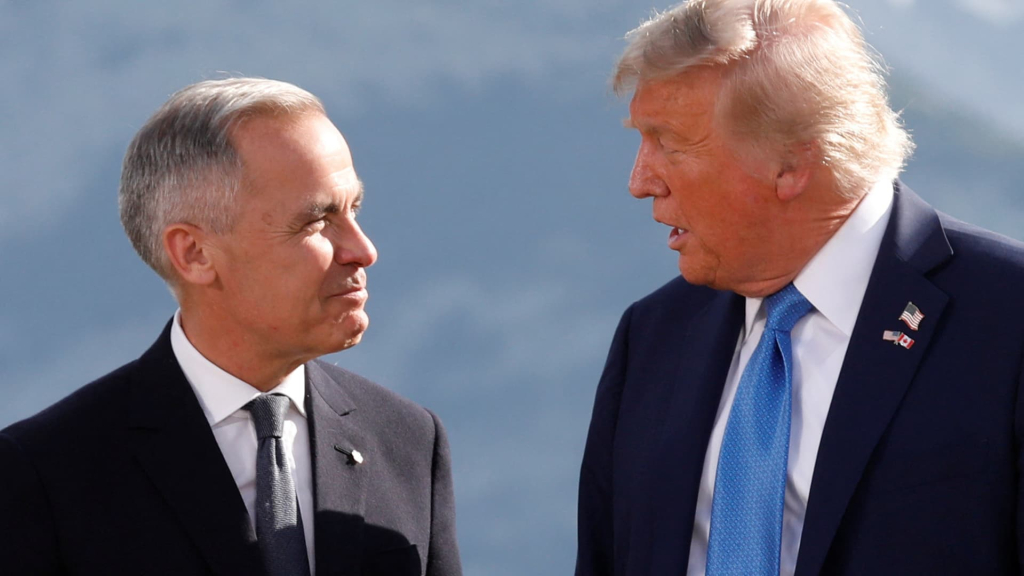The White House stated on Monday that Canada has acquiesced to President Donald Trump’s demands by abruptly rescinding its digital services tax. This decision came after Trump threatened to halt trade negotiations between the two countries, which are significant trade partners.
“It’s very straightforward: Prime Minister [Mark] Carney and Canada have caved to President Trump and the United States,” declared press secretary Karoline Leavitt during a press briefing.
Leavitt further criticized Canada’s original decision to implement the tax, saying it would have negatively impacted American technology firms. “It was a mistake for Canada to commit to that tax which would have affected our tech companies,” she commented.
According to Leavitt, Carney conveyed to Trump on Sunday evening that Canada would be abandoning the proposed tax, marking a notable achievement for American tech companies and workforce.
As of this report, there has been no immediate response from either the prime minister’s office or the Liberal Party regarding the claims made by the White House.
Leavitt’s statements followed comments from Kevin Hassett, a senior economist in Trump’s administration, who indicated that the White House is likely to encourage other nations to eliminate their own digital services taxes as part of ongoing trade discussions, building on Canada’s recent decision.
“I expect that digital services taxes worldwide will be lifted, and that will play a pivotal role in the ongoing trade negotiations we have,” said Hassett, the head of Trump’s National Economic Council, during an appearance on Finance Newso’s “Squawk on the Street.”
These remarks followed Canada’s announcement, just hours before the initiation of the new tax collection, to abolish the DST in order to “further advance broader trade negotiations” with the United States.
This policy reversal was prompted by a surprise threat from Trump on Friday to terminate all trade discussions with Canada if the DST remained in effect.
Since the discontinuation of the tax, Canada has informed that trade negotiations with the U.S. have resumed. The objective is to finalize a trade agreement by July 21, as announced in a statement by the Department of Finance in Ottawa.
“I’m very pleased to see that Canada is removing its DST, which means we can avoid implementing a complicated retaliation against the tax,” expressed Hassett on Monday.
He also warned that countries implementing digital sales taxes in the future should be prepared to face scrutiny from U.S. Trade Representative Jameson Greer regarding what he described as “unfair trade practices.”
In less than two weeks, the Trump administration’s significant tariffs on imports from various countries are expected to take effect.
Hassett expressed confidence that the U.S. possesses the necessary frameworks for multiple trade agreements that will likely be established shortly after a substantial Trump-supported budget bill clears Congress.
According to Hassett, there is urgency for the GOP-led House and Senate to pass the final version of the comprehensive tax-and-spending legislation and forward it to the president before this Friday.
Should this occur, Hassett anticipates a “marathon session” at the Oval Office, where Trump and his aides will review a list of countries and finalize U.S. tariff rates for each.
However, the adherence to the impending tariff deadlines of July 8 and July 9 remains uncertain. “We can do whatever we want,” Trump remarked when asked about his commitment to those dates.


























